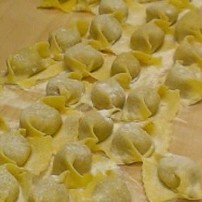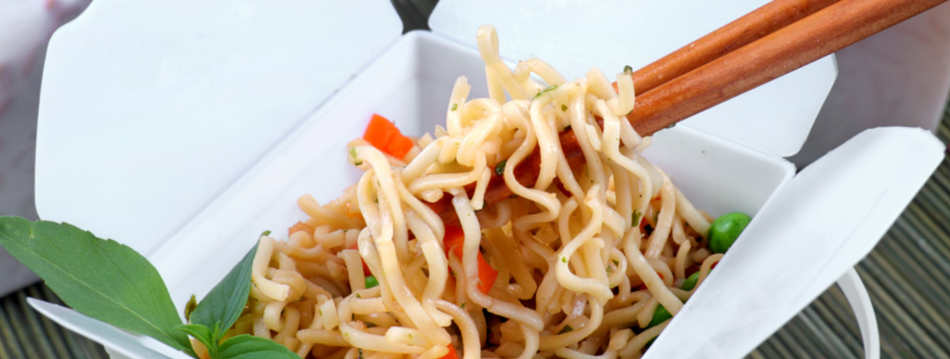 It seems like every day I hear someone else talking about the evils of gluten, or I talk to someone righteously proclaiming they are gluten-free, or someone asks me my advice on whether or not they should give it up. There are hundreds of articles written about the effect of gluten, and it seems to be the latest dietary scapegoat. Gluten-free foods is an exploding food category, and if you know anyone who espouses a Paleo diet they can have plenty to say on the subject. But what is Gluten and is it really so bad? I had to include this hilarious clip!
It seems like every day I hear someone else talking about the evils of gluten, or I talk to someone righteously proclaiming they are gluten-free, or someone asks me my advice on whether or not they should give it up. There are hundreds of articles written about the effect of gluten, and it seems to be the latest dietary scapegoat. Gluten-free foods is an exploding food category, and if you know anyone who espouses a Paleo diet they can have plenty to say on the subject. But what is Gluten and is it really so bad? I had to include this hilarious clip!
If you are someone who has celiac disease, or some other diagnosed gluten intolerance, gluten can hurt you. It can cause a wide range of symptoms, from a lack of energy, to skin rashes, severe digestive problems, and can even be life threatening. This is scary stuff, so what is it that is making all these people sick, and if it’s so bad, should you stop eating it? Gluten is a protein found in many grains, and proteins are what cause allergic reactions to food. The most common food allergies are to milk, soy and grains, specifically gluten. The dairy industry has more money and lobbyists behind it, so you don’t see much bad press about it though, and we seem to be gobbling up soy like it will save our lives, as gluten is demonized everywhere.
Last weekend I had a conversation with a young man who was recounting to me some ‘facts’ about gluten that had him wondering if he should give it up. Though he was very thin, his father had warned him that gluten turns to sugar in your body and makes you fat. If you have a gluten allergy, and gluten is part of your regular diet you will likely lose weight, as the havoc it wreaks on your gut can block absorption of critical nutrients. In fact many people who have been living with these issues, gain weight once they give up gluten and their guts heal. Gluten itself does not cause weight gain, any more than any other protein does. What may cause weight gain, is eating too much of the foods that contain gluten, like bagels and pasta (even whole wheat pasta), and I am not trying to tell you to give those up! After talking for quite a while about food, the food industry and health, that young man asked me what I thought the healthiest diet is. YIKES, I don’t offer that kind of advice, what is best for you is something you need to figure out. Some people thrive on vegan and vegetarian diets (and by diets I mean styles of eating, NOT weight-loss programs), some people feel significantly better when they eat animal protein, many people (myself included) feel better when they stay away from dairy (though as you know I do eat ice cream!). My advice to this young man, and to anyone else who would ask me for advice would be to eat as much real and unprocessed food as possible, to eat lots of fruits and vegetables, and to check ingredients on any packaged food you buy.
After talking for quite a while about food, the food industry and health, that young man asked me what I thought the healthiest diet is. YIKES, I don’t offer that kind of advice, what is best for you is something you need to figure out. Some people thrive on vegan and vegetarian diets (and by diets I mean styles of eating, NOT weight-loss programs), some people feel significantly better when they eat animal protein, many people (myself included) feel better when they stay away from dairy (though as you know I do eat ice cream!). My advice to this young man, and to anyone else who would ask me for advice would be to eat as much real and unprocessed food as possible, to eat lots of fruits and vegetables, and to check ingredients on any packaged food you buy.
When fat became the scapegoat for our girth, food manufacturers and processors, and consumers became obsessed with fat-free foods. We couldn’t get enough of them, and as a result of the ingredients that were used to replace the fats, we all got fatter and fatter. The gluten-free market is creating the same situation as more and more people diagnose themselves with gluten intolerance, and decide that gluten is to blame for their fatigue, weight gain, poor grades etc. Gluten-free is the new fat-free, and if you’ve jumped on that band wagon, I urge you to do a few things before you shell out more money on premium priced product that may not be doing anything for you but emptying your wallet.
If you think you have a gluten allergy or intolerance see you doctor and verify if that is the cause of your problem. You may have another issue that can go un-diagnosed and untreated if you blame the wrong culprit for your problems. If it is, then before running to the gluten-free packaged food section at your grocer’s do some research, and see how much of your regular diet can remain as it is, and what needs to change. Read the label! That is my advice before you buy anything, but especially if you’re looking for “free” foods; fat, sugar, gluten or anything else you’re trying to avoid. When food processors remove a key ingredient they replace it and often with something that’s not actually food, or anything you’d recognize as food.
Gluten allergies are serious, and if you have one you need to know. However is you’ve been persuaded by a well-meaning friend, co-worker, coach or your favorite gym-rat that you need to get gluten out of your diet because it is just bad for you, they may be wrong. Gluten is not evil, and if your body can digest it properly, it is not causing you harm or tight jeans. None of what I say is medical advice, I would never advise someone who has been diagnosed with a gluten allergy or intolerance to ignore medical advice, in fact I urge you to seek it if you believe gluten is a problem for you. What I am saying is that the fact that your BFF has given up gluten and feels better, doesn’t mean that it will have the same effect on you. Would you take her asthma medication?
I welcome comments and feedback, as I know this is a topic many people feel strongly about! Please tell me about your experiences with this, whether a friend is trying to convince you to give up gluten, or if you have done so and have found it had a positive impact on your health.





.jpg)





Jhanis - The food industry is also cashing in on this trend I think. Originally gluten free snacks now costs more after manufacturers stamped them with “gluten free” labels. How crazy is that?
nrlowell@comcast.net - Jhanis, that’s so true! I’ve noticed the same thing.
Anna Belle - Yes! time a million. I agree with you so much! We eat a ton of pasta and it’s totally fine. I’d say that processed gluten – just like many other processed foods – may not be the best, but not because of the gluten per se!
David Levine - I am a Pediatrician. I could not have stated your argument better. It is based on evidence and science. Thank you for your analysis.
nrlowell@comcast.net - David, Thank you, I am glad to hear that.